5 lawn care mistakes to avoid – as revealed by the experts
These common errors can quickly damage a lawn

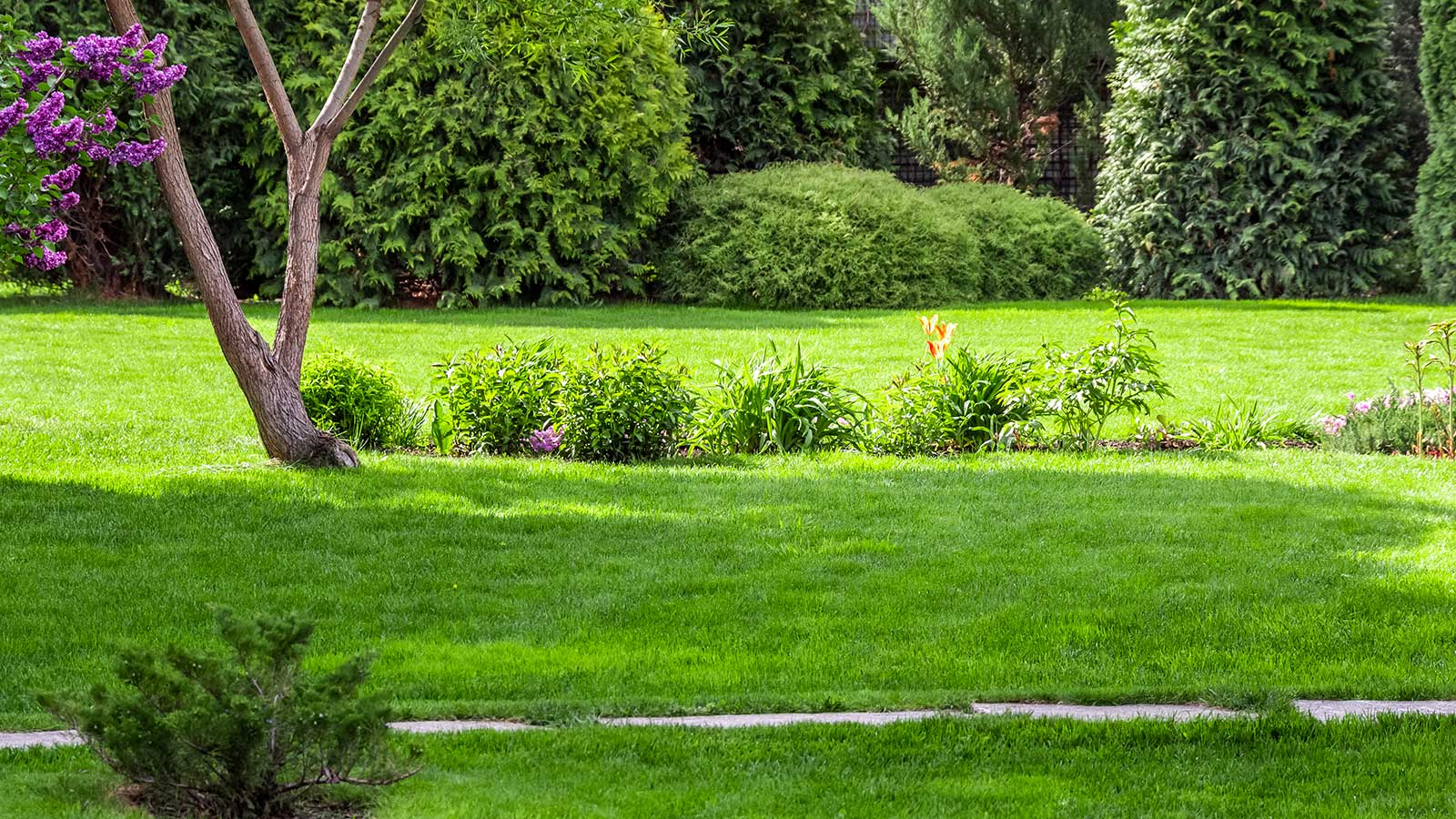
Mowing, aerating, feeding: there are lots of things you can do it help a lawn look its best. But there are also some common lawn care mistakes that are easily made, which can do more harm than good.
For instance, it is possible to have too much of a good thing when it comes to feeding and watering. And there are other aspects that can be easily overlooked, such as soil health – but they certainly shouldn't be.
I spoke to lawn care experts who revealed the most common lawn care errors made by homeowners. If you want a green and thick lawn (who doesn't?), make sure you're not making these, too.
5 common lawn care errors to avoid
Keep your lawn looking its best by avoiding these mistakes.
1. Overwatering the lawn
Knowing when to water your lawn is a key factor in keeping it healthy – and as Jon Sanborn, a real estate expert and the Co-Founder of SD House Guys reveals, it's a common mistake to overdo it.
'Too much water can cause the grass to become waterlogged, which can lead to root rot and fungus growth,' he warns. 'To avoid this problem, only water your lawn when absolutely necessary, generally no more than once a week during hot and dry periods.'
Brendon Willis, the CEO and Founder of Willis Lawn in Oklahoma City, shares a top tip: 'Before you run your sprinklers, go out and take a screwdriver to your lawn, trying to press it in. If your screwdriver is able to penetrate 3-4 inches into the ground, wait another day or two to water.'
Design expertise in your inbox – from inspiring decorating ideas and beautiful celebrity homes to practical gardening advice and shopping round-ups.
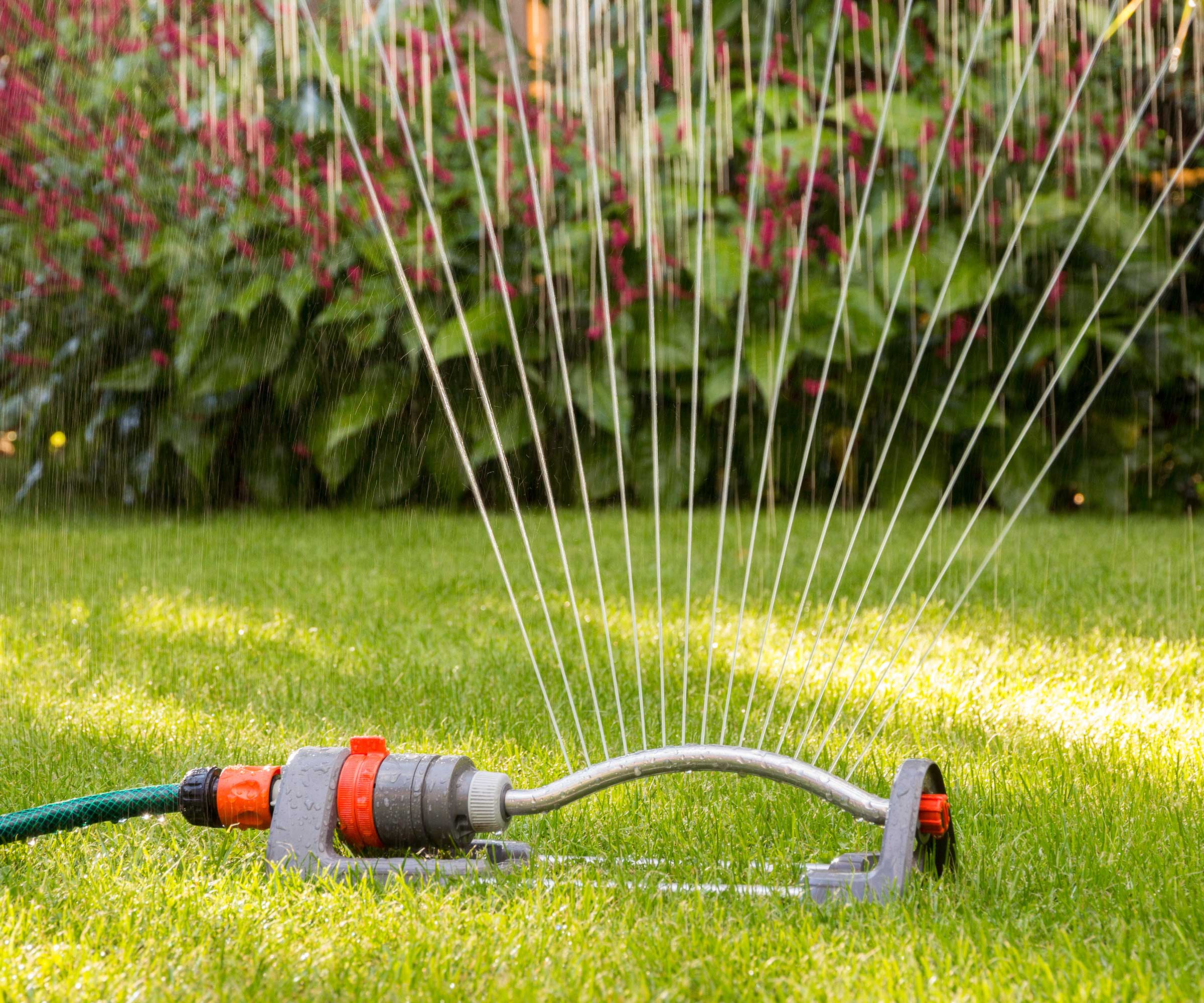
Keeping your lawn hydrated in hot weather is important, but don't overdo it
2. Applying too much fertilizer
Feeding your grass can give it a boost and help it grow stronger, but as with watering a lawn, it's important not to apply too much, or do it too frequently. Over-fertilizing a lawn can lead to unwanted results.
'Excess fertilizer can lead to overgrowth and weaken the grass, making it vulnerable to pests and diseases,' explains Gene Caballero, the Co-Founder of GreenPal.
'Moreover, the excess nutrients can run off and harm the environment,' he adds. 'To prevent this, follow the recommended application rate, use slow-release organic fertilizers, and avoid applying fertilizers before rain or watering.'

Gene Caballero is the Co-Founder of GreenPal which has been described as Uber for lawn care. He has been in the landscaping business for over 25 years.
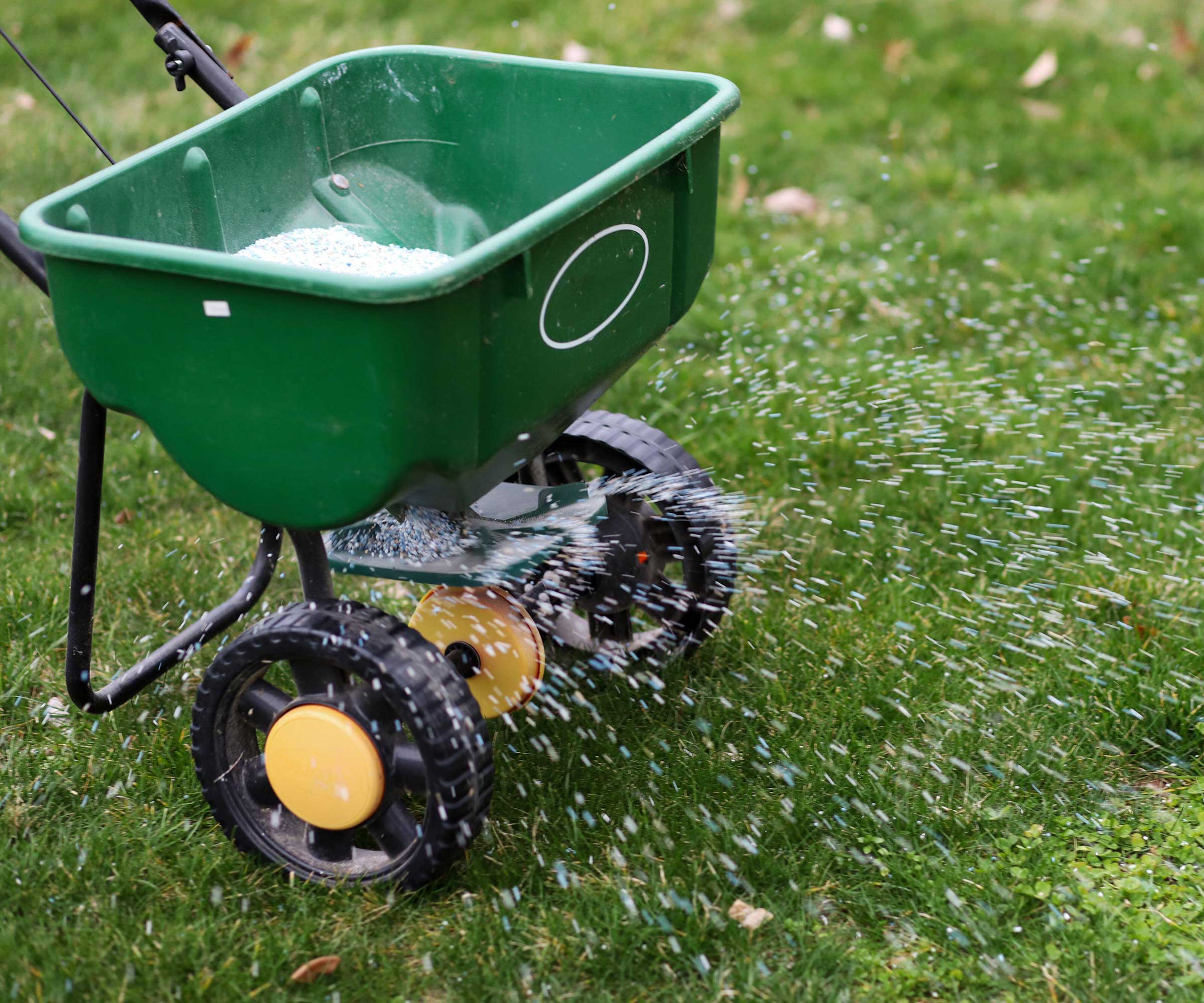
Too much fertilizer can harm the grass
3. Ignoring soil health
'A healthy lawn requires healthy soil,' says Gene Caballero. 'Ignoring soil health can result in soil compaction, nutrient deficiencies, and poor grass growth. To avoid this, regularly aerate your lawn to relieve soil compaction, test your soil to check nutrient levels, and add organic matter like compost to improve soil structure and fertility.'
'Lawns should be aerated every couple of years to allow air and water to penetrate the soil more deeply and promote root growth,' adds Jon Sanborn. 'Without proper aeration, grass will become shallow-rooted and more prone to drought stress.' This Gardzen aerator from Amazon is perfect for the job.
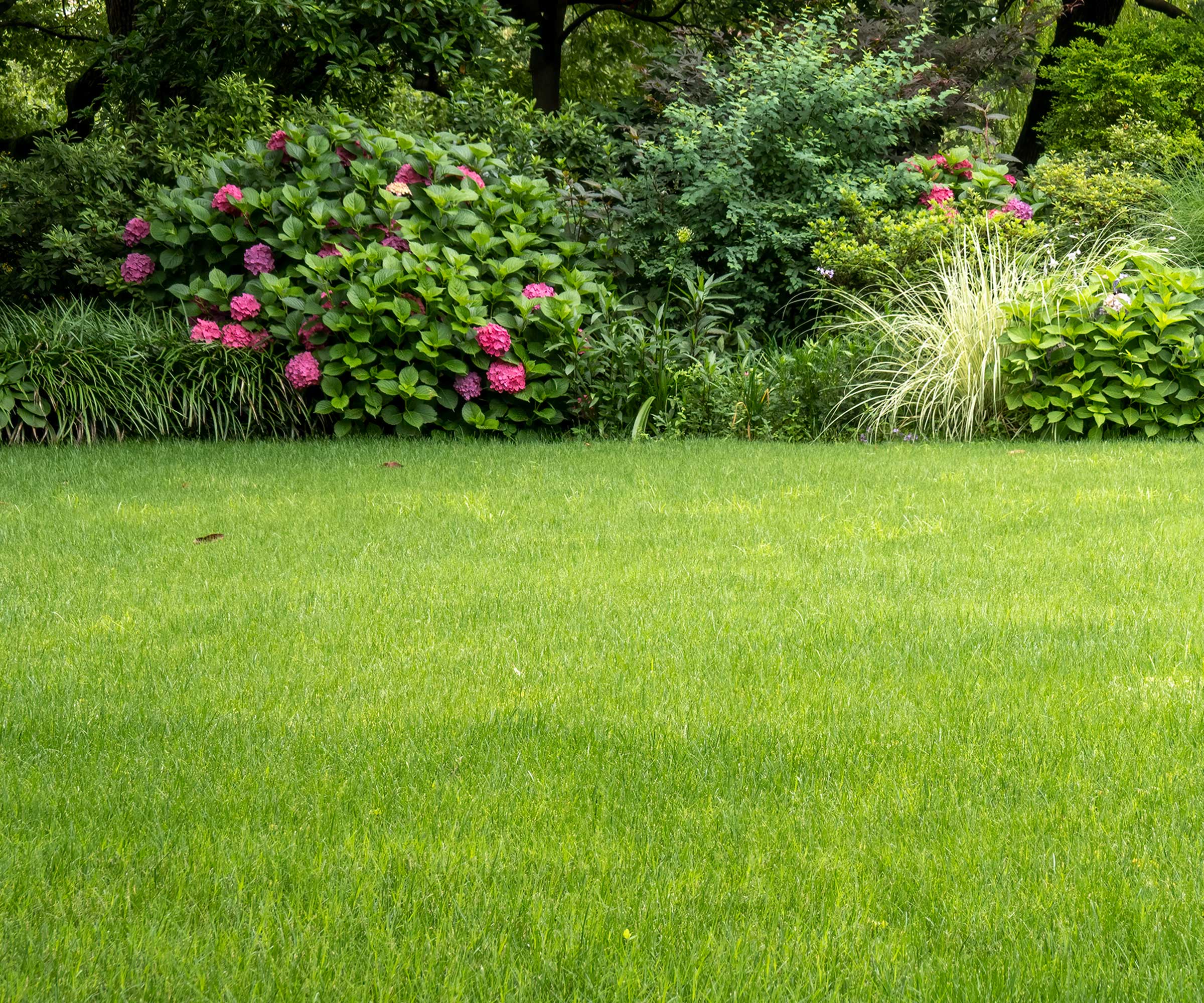
For a healthy lawn, you need healthy soil
4. Mowing when the grass is wet
'A common mistake people make with their lawns is mowing them while the grass is still wet,' says Jeremy Yamaguchi, the CEO of Lawn Love. 'You should aim to only ever mow dry grass.
'Mowing wet grass can harm both your mower and your yard. The clippings from wet grass can easily clog up your mower, causing damage if you don’t take care of it. These clippings can also be expelled from your mower in large sections, where they then can actually smother your planted grass, causing patches of your lawn to die or dry up.
'Wet grass doesn’t just apply to post-rainfall either, it includes early morning dew – which is where many people make this mistake. It is understandable to want to mow your lawn early in the morning in order to avoid the hot sun, however since yards are often covered with dew in the early morning, I would recommend mowing in the evening instead, if possible.'

As the CEO of Lawn Love, Jeremy Yamaguchi helps homeowners find quality, reliable lawn care. Specializing in technology and using industry experience, he intends to revolutionize the lawn care industry.
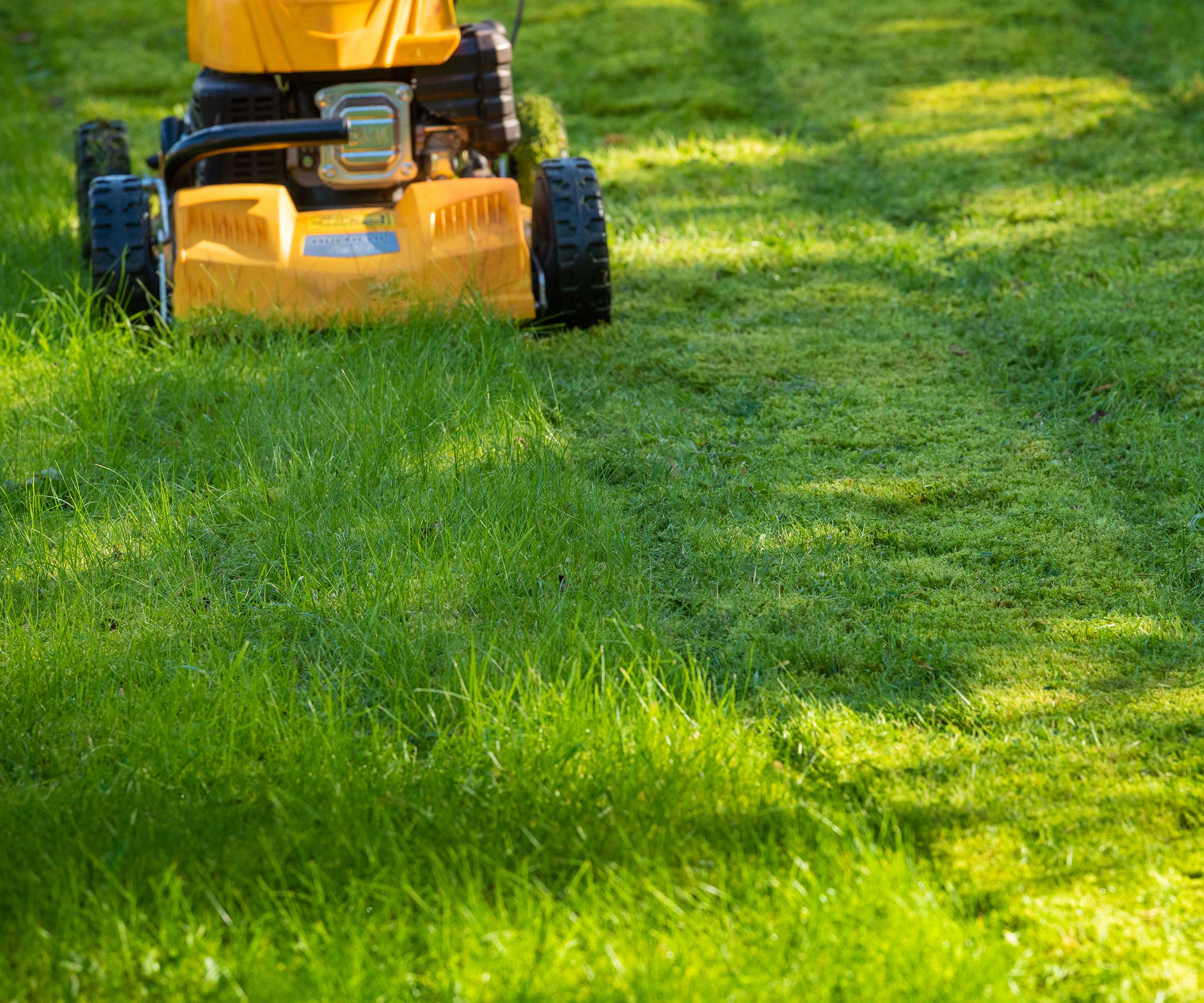
Mowing dry grass will give you much better results
5. Mowing too low
Whether you've recently invested in one of the best lawn mowers or have been using the same tool for years, when you go to use it it's important not to cut your grass too low.
Anton Schwarz, the CEO of Lawn Liberty, says that this is one of the most common lawn care mistakes he sees. 'When you cut any type of grass too low you are stressing the plant and it can lead to disease or invite insects, which will cause damage. You are also stressing the roots which can stunt the growth and lead to bare spots.'
Jon Sanborn of SD House Guys agrees, explaining how over-mowing can lead to scalping and thinning of the turf. 'Turf should be mowed regularly but it is important not to cut it too short,' he says. 'The ideal height for a lawn is between 2-3 inches.' The general guidance is to never remove more than a third of the length at a time.
'Additionally, make sure your mower blade is sharp,' adds Nikita Burgan of Greenbeard Lawn Care. 'A dull blade can tear the grass blades and create an uneven cut.'
It's true that looking after a lawn is a bit of a labor of love. But, avoiding these mistakes listed above will make it much easier. Be sure to keep them in mind when planning your lawn maintenance routine and you'll have much more success at getting a verdant stretch of green.

Holly started writing about gardening five years ago, and she is a regular contributor to Homes & Gardens. She has also written many gardening features for Woman & Home and Real Homes, too. She has previous experience as a professional gardener, where she helped to plant and maintain private gardens. Holly has also looked after allotment plots over the years and loves to grow her own flowers and veggies from seed. In her spare time, she enjoys visiting local gardens, botanical drawing, and tending to her ever-growing collection of houseplants.